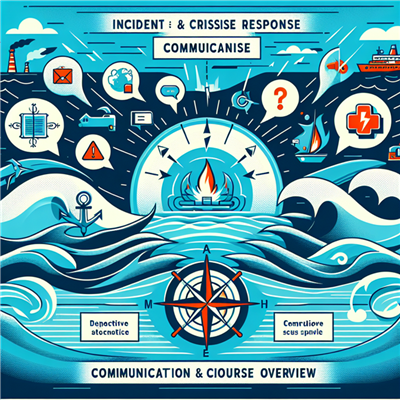
# Mastering Docker: Unlocking Advanced Concepts and Techniques
In an increasingly containerized world, mastering Docker advanced concepts is no longer a luxury—it's a necessity. Developers and IT professionals need to have a firm grasp on the powerful features and techniques that Docker offers to build, ship, and run distributed applications efficiently and securely. This blog post will dive into some of the advanced Docker concepts that can help you leverage Docker to its full potential.
### Understanding Docker's Advanced Networking Features
One of the key areas of Docker that can be considered advanced is its networking capabilities. Docker's networking allows containers to communicate with each other and with the outside world in a secure and scalable manner. Here's what you need to know:
- Custom Network Drivers: Beyond the default bridge network, Docker supports multiple network drivers that allow for different kinds of communication between containers.
- Network Plugins: You can extend Docker's networking capabilities by using third-party network plugins, which can provide additional functionality such as overlay networks for multi-host networking.
- Service Discovery: Docker services can be automatically discovered through embedded DNS servers, simplifying the process of scaling and managing containerized applications.
### Orchestrating Containers with Docker Swarm
When it comes to running and managing multiple containers across different hosts, Docker Swarm is a powerful tool to know. It's a clustering and scheduling tool for Docker containers. Here are the key features:
- High Availability: Docker Swarm provides high availability with replicated services, ensuring that your application stays up and running even if one or more nodes fail.
- Load Balancing: Built-in load balancing distributes service requests efficiently across the cluster, optimizing resource utilization.
- Scalability: Easily scale your application up or down with simple commands, adjusting to the demands of your system dynamically.
### Security Best Practices in Docker
Security is paramount when deploying applications. Docker includes several features that help secure your containers:
- Image Signing and Verification: Docker Content Trust enables you to sign images and verify their integrity to ensure that the containers you're running are exactly what the developers intended.
- User Namespaces: This feature allows you to segregate container and Docker daemon-level privileges, reducing the risk of privilege-escalation attacks.
- Secure Computing Mode (Seccomp): Docker uses Seccomp to filter system calls to the kernel, providing a more secure environment for your containers.
### Performance Tuning and Monitoring in Docker
Maximizing the performance of your Docker containers is essential for ensuring efficient operations. Here's what you need to focus on:
- Resource Limits: Docker allows you to set resource limits on containers, such as CPU and memory usage, to ensure that no single container can monopolize system resources.
- Logging and Monitoring: Effective logging and monitoring are vital to understanding the performance and health of your containers. Docker provides built-in commands like `docker stats` and `docker logs` to help with this.
- Networking Performance: Optimizing network performance can significantly affect the speed and reliability of your containerized applications. Docker provides advanced networking features to help you fine-tune this aspect.
### Continuous Integration/Continuous Deployment (CI/CD) with Docker
Docker can be integrated into your CI/CD pipeline to streamline the development and deployment process. Here's how Docker fits into CI/CD:
- Automated Builds: Docker can automate the build process of your applications, creating new container images upon code commits.
- Testing Environments: Docker provides consistent environments for testing, ensuring that your application behaves the same in development, testing, and production.
- *Deployment Strategies: Docker supports various deployment strategies, such as blue-green deployments and rolling updates, allowing for smooth and controlled rollouts of new features.
### Conclusion: Harnessing Advanced Docker Concepts with Koenig Solutions
Docker's advanced features offer immense benefits to teams looking to streamline their development and deployment workflows. By understanding and implementing these advanced Docker concepts, you can ensure that your containerized applications are robust, secure, and performant.
As a leading IT training company, Koenig Solutions offers certification courses in top technology streams, including Docker. Their [Advanced Docker Concepts and Container Orchestration](click here) course is designed to provide you with in-depth knowledge and hands-on experience with Docker's powerful tools and features. Partnering with Koenig Solutions ensures that you stay ahead in the ever-evolving landscape of containerization technologies.
For more information on Docker training and certification, visit [Koenig Solutions](https://www.koenig-solutions.com), and take a leap in mastering Docker's advanced concepts today.
---
In an increasingly containerized world, mastering Docker advanced concepts is no longer a luxury—it's a necessity. Developers and IT professionals need to have a firm grasp on the powerful features and techniques that Docker offers to build, ship, and run distributed applications efficiently and securely. This blog post will dive into some of the advanced Docker concepts that can help you leverage Docker to its full potential.
### Understanding Docker's Advanced Networking Features
One of the key areas of Docker that can be considered advanced is its networking capabilities. Docker's networking allows containers to communicate with each other and with the outside world in a secure and scalable manner. Here's what you need to know:
- Custom Network Drivers: Beyond the default bridge network, Docker supports multiple network drivers that allow for different kinds of communication between containers.
- Network Plugins: You can extend Docker's networking capabilities by using third-party network plugins, which can provide additional functionality such as overlay networks for multi-host networking.
- Service Discovery: Docker services can be automatically discovered through embedded DNS servers, simplifying the process of scaling and managing containerized applications.
### Orchestrating Containers with Docker Swarm
When it comes to running and managing multiple containers across different hosts, Docker Swarm is a powerful tool to know. It's a clustering and scheduling tool for Docker containers. Here are the key features:
- High Availability: Docker Swarm provides high availability with replicated services, ensuring that your application stays up and running even if one or more nodes fail.
- Load Balancing: Built-in load balancing distributes service requests efficiently across the cluster, optimizing resource utilization.
- Scalability: Easily scale your application up or down with simple commands, adjusting to the demands of your system dynamically.
### Security Best Practices in Docker
Security is paramount when deploying applications. Docker includes several features that help secure your containers:
- Image Signing and Verification: Docker Content Trust enables you to sign images and verify their integrity to ensure that the containers you're running are exactly what the developers intended.
- User Namespaces: This feature allows you to segregate container and Docker daemon-level privileges, reducing the risk of privilege-escalation attacks.
- Secure Computing Mode (Seccomp): Docker uses Seccomp to filter system calls to the kernel, providing a more secure environment for your containers.
### Performance Tuning and Monitoring in Docker
Maximizing the performance of your Docker containers is essential for ensuring efficient operations. Here's what you need to focus on:
- Resource Limits: Docker allows you to set resource limits on containers, such as CPU and memory usage, to ensure that no single container can monopolize system resources.
- Logging and Monitoring: Effective logging and monitoring are vital to understanding the performance and health of your containers. Docker provides built-in commands like `docker stats` and `docker logs` to help with this.
- Networking Performance: Optimizing network performance can significantly affect the speed and reliability of your containerized applications. Docker provides advanced networking features to help you fine-tune this aspect.
### Continuous Integration/Continuous Deployment (CI/CD) with Docker
Docker can be integrated into your CI/CD pipeline to streamline the development and deployment process. Here's how Docker fits into CI/CD:
- Automated Builds: Docker can automate the build process of your applications, creating new container images upon code commits.
- Testing Environments: Docker provides consistent environments for testing, ensuring that your application behaves the same in development, testing, and production.
- *Deployment Strategies: Docker supports various deployment strategies, such as blue-green deployments and rolling updates, allowing for smooth and controlled rollouts of new features.
### Conclusion: Harnessing Advanced Docker Concepts with Koenig Solutions
Docker's advanced features offer immense benefits to teams looking to streamline their development and deployment workflows. By understanding and implementing these advanced Docker concepts, you can ensure that your containerized applications are robust, secure, and performant.
As a leading IT training company, Koenig Solutions offers certification courses in top technology streams, including Docker. Their [Advanced Docker Concepts and Container Orchestration](click here) course is designed to provide you with in-depth knowledge and hands-on experience with Docker's powerful tools and features. Partnering with Koenig Solutions ensures that you stay ahead in the ever-evolving landscape of containerization technologies.
For more information on Docker training and certification, visit [Koenig Solutions](https://www.koenig-solutions.com), and take a leap in mastering Docker's advanced concepts today.
---







COMMENT